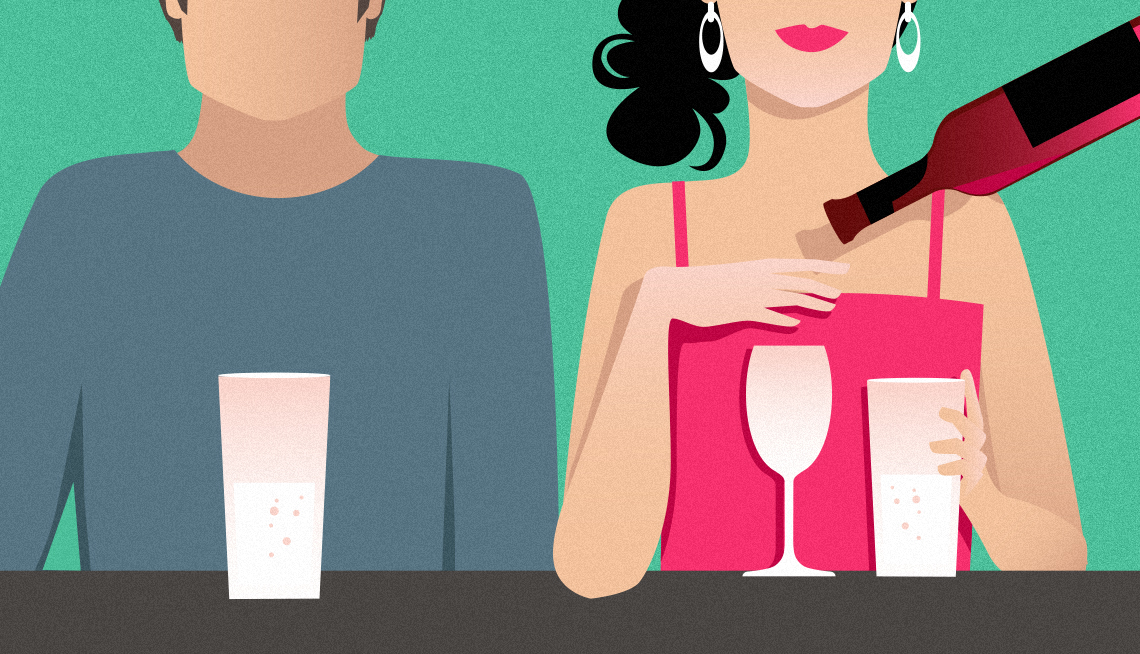
- Select a language for the TTS:
- UK English Female
- UK English Male
- US English Female
- US English Male
- Australian Female
- Australian Male
- Language selected: (auto detect) - EN
Play all audios:
2. FOCUS ON YOUR WHY Take a moment to understand why you want to cut back on drinking. “Be radically honest with yourself,” says Kristin Hankins, outpatient program manager at Mountainside
treatment center. Ask yourself: “What is it that you want to explore in a sober lifestyle? Is it for health reasons, to gain clarity and focus, to improve relationships or simply to
experiment with a different lifestyle?” Knowing what is driving this change can help you stay motivated and focused, explains Hankins. It’s also a good idea to take note of when you drink
and to try to be more mindful of those moments, adds Hobelmann. For instance, are you drinking when you go out with friends socially after work or pouring a glass of wine out of habit every
night when you cook dinner? 3. CREATE A COMMUNITY Discuss your sober curiosity with friends and loved ones, as creating a community of others on the same journey can help you to succeed. “I
think more people than you may have thought are actually considering this and thinking about it,” says Hobelmann. “I can’t tell you how many times I say I don’t drink, and people say, ‘Gosh,
I need to do that or I need to take a break.’ So opening up to others about your desire to cut back may be an easy way to find accountability buddies. And regardless of whether they are
sober curious themselves, ask those around you for support. This, says Albertson, has been pivotal in her success. 4. HAVE A PLAN Changing a behavior, says Hobelmann, can be hard. And when
it comes to alcohol, people often are quick to adopt an all-or-nothing mentality. “What we typically see is someone say, ‘Hey, I’m gonna stay completely sober for this period.’ And then when
they have one drink, that’s out the window and they’re back to their old set of habits,” he explains. For this reason, it’s good to go in with a game plan, whether that’s cutting back to X
number of drinks per week, drinking every other day to start or only drinking on the weekends. Then, once you feel good in that spot, you can reevaluate and go from there. “Focus more on
moderation or decreasing alcohol consumption than abstinence,” adds clinical director and licensed counselor Jenni Busse at Southern California recovery center Gratitude Lodge. Oftentimes,
she explains, if one focuses on abstinence and slips up, it can lead them to give up as they feel like they have failed. “However, if you focus on moderation, it allows you to cut back in
small, manageable steps, instead of cutting it out of your life cold turkey.” 5. TRACK THE BENEFITS Writing down how drinking less positively impacts your life can help you stay motivated on
your sober curious journey. Grab a notepad and jot down the benefits of what you’re feeling after cutting back. If you notice more energy, that you’re sleeping better, have fewer hangovers
or see that your complexion has improved, for instance, write that down. “Lowering alcohol intake can help improve function, cognition and health,” says Deborah Freeland, M.D., an assistant
professor in the Department of Internal Medicine at UT Southwestern Medical Center. Cutting back, she adds, can also help reduce one’s risk of falls, driving impairment and cognitive
decline, which are already high-risk conditions in older adults. “Decreasing alcohol can also reduce risk of other medical issues like insomnia, high blood pressure, stroke, osteoporosis,
obesity, anemia, liver disease, cancer, heart conditions, depression and electrolyte abnormalities,” adds Freeland. And alcohol, she warns, can also interfere with numerous medications,
which can be problematic, so you may notice some improvements in how prescribed medications affect you. On her end, Ayala has noticed that since she stopped the booze, she’s sleeping better,
having an easier time with menopause symptoms and has less nasal pressure and fewer sniffles.









